Ion Channels
Ion channels are pore-forming proteins that are located in the cell membrane and facilitate the movement of ions across the membrane. These channels are critical for various physiological processes including nerve signaling, muscle contraction, and maintaining the balance of ions within cells.
Structure of Ion Channels
Ion channels are made up of transmembrane protein subunits that form a pore through which ions can pass. These subunits can be made up of multiple protein chains, and they often have specific regions that regulate the opening and closing of the channel in response to various stimuli.
Function of Ion Channels
Ion channels play a crucial role in the generation and propagation of electrical signals in excitable cells such as neurons and muscle cells. When a cell is at rest, the ion channels are often closed, but they can open in response to a variety of signals, including changes in voltage, ligand binding, or mechanical stimuli.
Types of Ion Channels
There are several types of ion channels, including:
- Voltage-gated ion channels: These channels open and close in response to changes in the electrical potential across the cell membrane.
- Ligand-gated ion channels: These channels open and close in response to the binding of specific molecules, such as neurotransmitters.
- Mechanically-gated ion channels: These channels open and close in response to physical forces, such as pressure or stretching of the cell membrane.
- Leak channels: These channels are always open and allow a small, constant flow of ions across the membrane.
Regulation of Ion Channels
Ion channels can be regulated by a variety of factors, including the concentration of ions, the presence of specific molecules, and the phosphorylation of the channel proteins. This regulation allows cells to finely tune the movement of ions in response to changing physiological conditions.
Importance of Ion Channels
Ion channels are essential for the proper functioning of the nervous system, muscle contraction, and many other physiological processes. Dysfunction of ion channels has been linked to various diseases, including epilepsy, cardiac arrhythmias, and certain genetic disorders.
Study Guide Questions
- What are ion channels, and where are they located?
- Describe the structure of ion channels and how they facilitate the movement of ions.
- Explain the different types of ion channels and the stimuli that can cause them to open and close.
- How are ion channels regulated, and why is this regulation important for cellular function?
- Discuss the importance of ion channels in physiological processes and the potential consequences of their dysfunction.
◂Science Worksheets and Study Guides Sixth Grade. Genetics - Study of Heredity

 Activity Lesson
Activity Lesson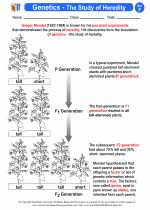
 Worksheet/Answer key
Worksheet/Answer key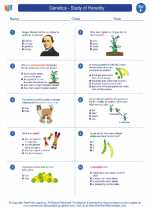
 Worksheet/Answer key
Worksheet/Answer key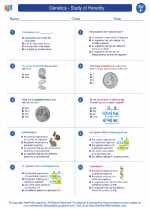
 Worksheet/Answer key
Worksheet/Answer key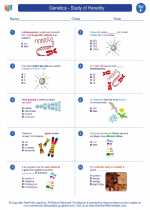
 Vocabulary/Answer key
Vocabulary/Answer key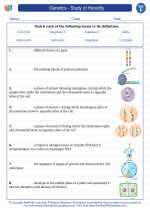
 Vocabulary/Answer key
Vocabulary/Answer key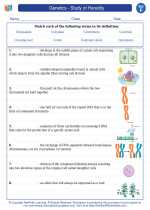
 Vocabulary/Answer key
Vocabulary/Answer key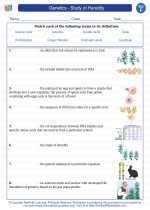
 Vocabulary/Answer key
Vocabulary/Answer key
 Vocabulary/Answer key
Vocabulary/Answer key
 Vocabulary/Answer key
Vocabulary/Answer key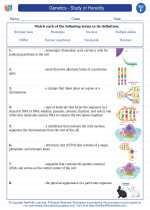
 Vocabulary/Answer key
Vocabulary/Answer key
 Vocabulary/Answer key
Vocabulary/Answer key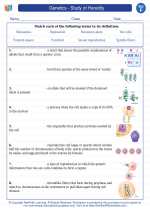
 Vocabulary/Answer key
Vocabulary/Answer key
